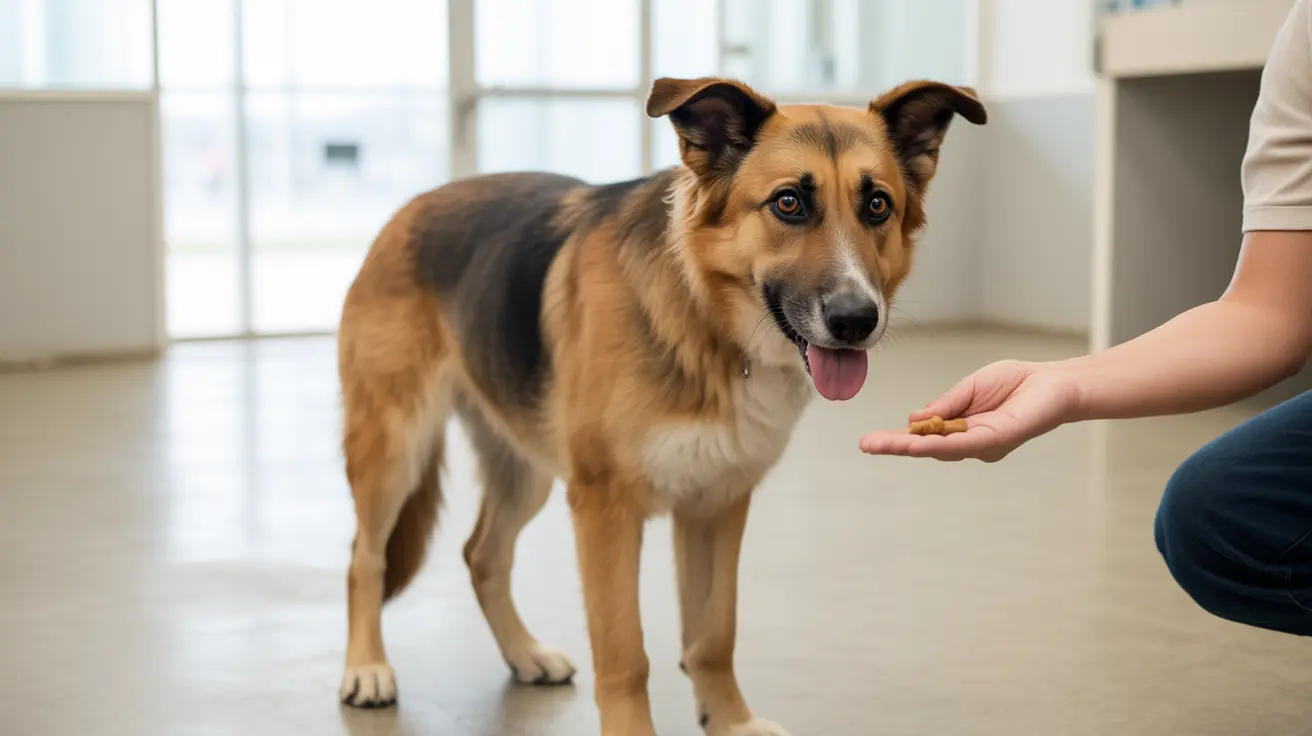If you've noticed your dog's mouth seems unusually dry or they're having trouble eating, they might be suffering from dry mouth, medically known as xerostomia. This condition, which occurs when dogs don't produce enough saliva, can significantly impact your pet's oral health and overall well-being.
While occasional dry mouth might result from simple dehydration, persistent cases could signal more serious underlying conditions, including autoimmune disorders like Sjögren-like Syndrome. Understanding the causes, recognizing the symptoms, and knowing when to seek veterinary care are crucial for maintaining your dog's health.
Common Causes of Dry Mouth in Dogs
Several factors can lead to dry mouth in dogs:
- Dehydration from insufficient water intake or excessive activity
- Side effects from medications like antihistamines and diuretics
- Autoimmune conditions, particularly Sjögren-like Syndrome
- Radiation therapy affecting the salivary glands
- Nerve damage impacting saliva production
- Systemic diseases such as diabetes or Cushing's disease
Recognizing the Signs of Dry Mouth
Watch for these key indicators of dry mouth in your dog:
- Thick, sticky saliva or complete lack of visible saliva
- Cracked or dry tongue
- Bad breath
- Difficulty eating or swallowing
- Increased plaque buildup
- Inflamed or bleeding gums
- Decreased appetite
- Frequent drinking
Treatment and Management Approaches
Immediate Care Strategies
The first step in treating dry mouth often involves addressing immediate comfort and hydration:
- Ensuring constant access to fresh water
- Using pet-safe oral moisturizing gels
- Switching to softer food if needed
- Regular dental cleaning and oral care
Long-term Management
For chronic cases, especially those related to underlying conditions:
- Medication adjustments if dry mouth is a side effect
- Immunosuppressive therapy for autoimmune conditions
- Regular veterinary monitoring
- Specialized dental care routines
Prevention and Home Care
While not all causes of dry mouth are preventable, these steps can help maintain oral health:
- Monitor water intake daily
- Maintain regular dental check-ups
- Watch for early warning signs
- Keep a consistent feeding and hydration schedule
- Avoid excessive exercise in hot weather
When to See a Veterinarian
Seek veterinary care if you notice:
- Persistent dry mouth lasting more than 24 hours
- Difficulty eating or drinking
- Signs of oral pain or infection
- Concurrent symptoms like dry eyes or lethargy
- Sudden changes in eating habits
Frequently Asked Questions
What are the common causes of dry mouth (xerostomia) in dogs and how can I recognize the symptoms?
Dry mouth in dogs can be caused by dehydration, medications, autoimmune conditions, and systemic diseases. Common symptoms include thick saliva, difficulty eating, bad breath, and increased thirst.
How is Sjögren-like syndrome diagnosed and treated in dogs with persistent dry mouth and dry eyes?
Diagnosis involves clinical examination, blood tests, and possibly imaging or biopsy of affected glands. Treatment typically includes immunosuppressive medications, artificial tears, and oral moisturizers.
What home care and veterinary treatments can help manage my dog's dry mouth and prevent oral infections?
Regular dental care, maintaining hydration, using oral moisturizers, and following veterinary treatment plans are essential. Some dogs may need specialized diets or medication adjustments.
Can certain medications my dog is taking cause dry mouth, and what should I do if I notice this side effect?
Yes, medications like antihistamines and diuretics can cause dry mouth. If you notice symptoms, consult your veterinarian about possible medication adjustments or management strategies.
How can I prevent dehydration in my dog to avoid dry mouth and related health complications?
Ensure constant access to fresh water, monitor water intake, avoid excessive exercise in hot weather, and watch for early signs of dehydration like reduced urination or lethargy.
Remember, while dry mouth might seem like a minor issue, it can lead to serious complications if left untreated. Always consult with your veterinarian if you notice persistent symptoms or changes in your dog's oral health.






